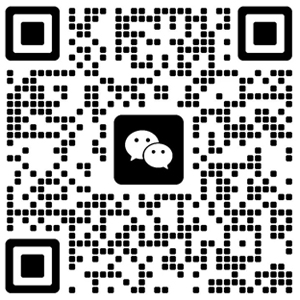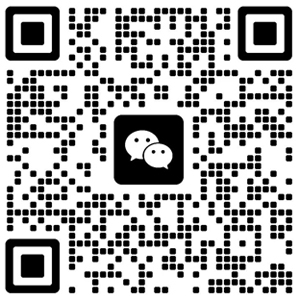2014雅思考試_2014雅思考試時間
2014雅思考試_2014雅思考試時間
好久不見了,今天我想和大家探討一下關于“2014雅思考試”的話題。如果你對這個領域還不太了解,那么這篇文章就是為你準備的,讓我們一看看吧。
文章目錄列表:
1.2014雅思口語評分標準(英文版)2.2014雅思聽力三大解題思路

2014雅思口語評分標準(英文版)
接下來的文章《2014雅思口語評分標準(英文版)》由雅思頻道為您提供,為您的考試之路保駕護航,希望您取得好成績。
1. Pronunciation(Scored 2,4,6,8)
The first important aspect of this section is that there are only four different socre bands: 2-4-6-8, instead of the nine bands(1-9). Approximately 90% of Chinese candidates score 4 or 6 in this section.
The most common myth about the "Pronunciation" section is that many people place too much importance on accent. The pronunciation score is influenced by accent but there are other important factors wich influence the score.
"Pronunciation" covers the following language aspects:
1) How easily the examiner understands what is being said;
2) Word stress;
3) Sentence stress;
4) Intonation;
5) Evidence of first language accent.
2. Fluency and Coherence(Scored 1-9)
In general terms, the score for "Fluency and Coherence" refers to the way that the candidate speaks.
The features described in the marking system for this section include:
1)Ability to produce long responses;
2)How easily the candidate can produce long responses;
3)The amount hesitation;
4)The speed of speech;
5)Use of discourse markers/linking phrases/connectives;
6)The amount of self-correction
3.Lexical REsource (Scored 1-9)
Many people (even examiners)call this sectionas the "vocabulary" score.
There are some common misunderstanding about how this score is awarded.
I have often been asked the following questions:"How many words do I need to know to get vocabulary score of 7?"
This question is almost impossible to answer because the marking system does not base the "Vocabulary" score on how many words you know.
The "Vocabulary" section of the marking system is based on the type of words you use and how you use them.
The language points featured in this section of the marking system include:
1)Ablility to use less common words;
2)Use of idiomatic language;
3)Paraphrasing(explaining words that you don't know);
4)Ability to talk about unfamiliar topics;
5)Ability to convey precise meaning
4.Grammatical Range and Accuracy(Scored 1-9)
There are two aspects of this score "range" and "accuracy". This score is often misunderstood because many people believe that a high score is awarded if the candidate doesn't make any grammar mistakes. The score in this section is based on a number of different factors including:
1) Sentence formation;
2) Use of clauses(subordinate etc);
3) Use of complex structures;
4) Range of tense use;
5) Error density(the number of errors in each sentence);
6) The level of errors(whether the errors occur in basic or complex structures)
2014雅思聽力三大解題思路
在雅思聽力考試之前了解一下雅思聽力解題思路是非常有必要的,接下來由雅思頻道為您提供《2014雅思聽力三大解題思路》希望對您有幫助,歡迎您 訪問瀏覽更多資訊。
思路一:節(jié)奏性讓考生有條不紊聽題
時間節(jié)奏:除了大家熟悉的讀題時間之外,每個section之后均有30秒鐘讀題時間,充分將這30秒依次轉移到下個section會有效緩解后3個section的讀題緊張性。
順序節(jié)奏:雅思聽力共40個題目(共4部分)均按照順序性原則出題,因此,在讀題過程中要清楚了解每道題的考點,為有目的的進行聽力做準備,即有效Listen for sth的做題思路;
思路二:對話邏輯透析答案以哪一個speaker為準
一個簡單的對話例子,CAMBRIAGE 4 TEST3 的SECTION1, 問題考試用書是length of time in Australia, 當提問者問到 how long have you been in Australia?回答者:A year in Adelaide and six months in Sydney, i prefer Sydney...這個題目很多同學答案會選擇6months, 主要原因是只知道悉尼是澳大利亞的城市,卻不知道Adelaide也是澳大利亞的城市,在聽力中如果有一些地理常識當然會幫助做題,但是如果熟悉對話技巧的話,通過發(fā)問者的問題:在澳大利亞已經待了多長時間?我們會很明顯邏輯的推出后面回答均是在澳大利亞的時間,故答案為18months或者1.5years。
Section1對話如此,同樣與seciton1一樣均為對話的Section3也處處可見對話的邏輯優(yōu)勢,在清楚2個speaker之間的邏輯關系之后,我們會很容易找到題目的切入點,如:劍8 Test 3 Q 27-30的配對題,出題形式大家都很熟悉,與C7T4S3 Q23-26 極為相似, 即:
What does Paul decide about each of the following modules?
Write the correct letter, A, B or C, next to questions 27-30.
A He will do this
B He might do this
C He won?t do this
Module
27. Gender Studies in Latin America_____
28. Second Language Acquisition ______
29. Indigenous Women?s Lives ______
30. Portuguese Language Studies ______
今天關于“2014雅思考試”的討論就到這里了。希望通過今天的講解,您能對這個主題有更深入的理解。如果您有任何問題或需要進一步的信息,請隨時告訴我。我將竭誠為您服務。

請?zhí)砑游⑿盘栕稍儯?9071507959
最新更新
推薦閱讀
猜你喜歡
關注我們


 留學規(guī)劃
留學規(guī)劃  留學考試
留學考試  留學指南
留學指南  留學攻略
留學攻略  留學生活
留學生活  留學信息
留學信息  留學專業(yè)
留學專業(yè)  留學簽證
留學簽證  關于我們
關于我們  網站首頁
網站首頁








